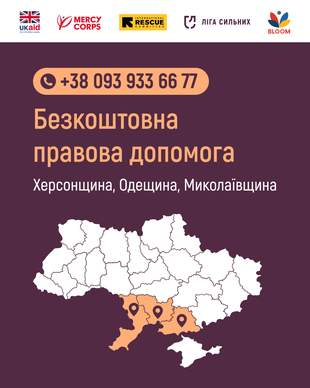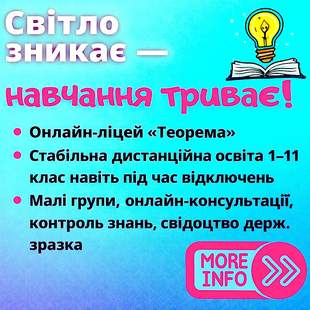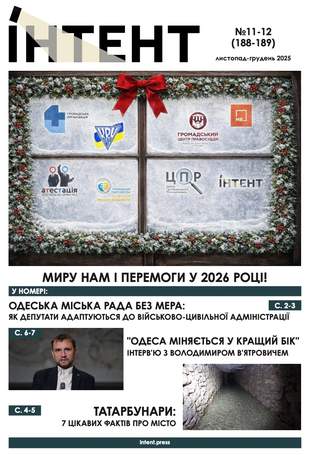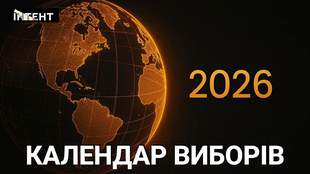Меню
Соціальні мережі
Розділи
Dec. 6, 2024, 11:34 p.m.
War and Poetry: An Interview with Andrii Khaietskyi
This article also available in English157
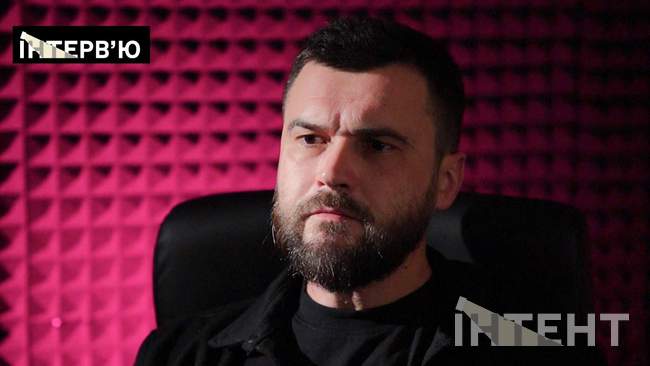
Photo: Intent/Natalia Dovbysh
Ukraine is undergoing rapid change. The old traditions are dying, making way for the new, including in Ukrainian literature. Odesa has also contributed its share of emerging voices. We spoke with Andrii Khaietskyi, a poet from Odesa, who shared his thoughts on the ongoing war and his memories of growing up in the city.
Watch the full interview on our YouTube channel or read about festivals, Ukraine's growth since gaining independence, the Odesa region, and the tradition of toloka in the abridged version.
Video: Intent
You recently participated in a panel discussion called 'Contemporary Odesa Poetry.' Does such poetry exist, and how would you characterize it?
Poetry has always been a more delicate form of literature than prose. And Ukrainian contemporary poetry does exist. As for Odesa's poetry, it's great to see it finally getting recognition on a national level. Odesa poets are seen, heard, and read beyond the city. As for now, the poems are pretty introspective. There are some wonderful young poets who might shape the future of Ukrainian literature. So, it is hard to specify what the poetry is like. It exists, and that's what really matters.
Has the circle of Odesa writers and poets grown? Are there more events and presentations, or is it simply a shift in how society views their work?
Our poetry has become more complex and painful as people use it to express their emotions toward everything that's happening. This year marked the second Meridian Odesa festival, which is a positive development for our city. Fork Fest 2024 in Chornomorsk also featured both poetry and prose, bringing something new and fresh to the scene. But how long has it been since the Odesa International Literary Festival? It was initially part of the Berlin Literary Festival, with the main organizers coming from Germany. However, the last two festivals weren't held in Ukraine. I find it curious that they still call it the Odesa festival when they don't even invite Odesa authors to participate. It doesn't contribute to Odesa literature or Ukraine, in general—it feels like it's just for show.
Today, I'm wearing a T-shirt with a quote from Maks Kryvtsov for a reason—I want to honor the memory. With each passing day, that memory grows heavier, but it will consist primarily of names rather than anything material. Maks Kryvtsov was a soldier and a poet who died on January 7th. We knew each other, though we didn't really talk much. Still, Maks's poetry has resonated deeply with me for many years. I pre-ordered his book as soon as it was announced and was thrilled when it was finally published. But it's terrifying to think that the book has gained such recognition only because its author is no longer with us. His quote—that war is about names—is perhaps one of the greatest truths of our time.
You once mentioned that the Sea Port was a special place for you. It's not the first time I've heard about this location, though currently it's not accessible. How does Odesa inspire you now?
Odesa inspires me in every possible way. This city gives me the sense of freedom I struggle to find elsewhere. I feel confined without an open horizon. The skyline listens to, supports, and fascinates me; it does everything to keep me moving forward. The Sea Port has been my place of power since I was young. I used to sit on the metal piers, surrounded by yachts, gazing out at the sea and the lighthouse. It was there, I think, that I fully understood what image the russians were trying to put on our city.
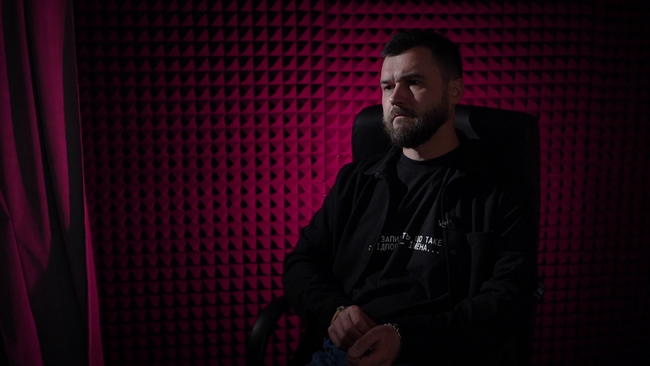
Photo: Intent/Natalia Dovbysh
I remember one spring day, I was sitting at the Sea Port, drinking coffee, and I turned my head towards the Potomkin Stairs and saw somebody unfurl the russian flag for a brief second and then fold it back. I started walking in that direction to leave the Sea Port and realized that the people passing me weren't locals. They were all chatting, saying they just wanted to see how the flag would look and that buses were waiting for them on Prymorska Street.
Prymorskyi Boulevard. It was closed at the beginning of the full-scale invasion, and I missed it terribly. Just as much as I missed the whole city center, Italiiska Street, plane trees, the Opera Theatre, and my neighborhood in Tairova. I could go on and on. And yet, the city is constantly taking on new meanings. You walk around and remember something that happened here or somebody you met there. Odesa isn't just a place; it has a soul. It's alive, filled with memories, and, most importantly, with people.
I notice a difference in the attitudes of people who grew up during the Soviet era as opposed to those who grew up after the Declaration of Independence. I'm not talking about being pro-russian, but about how it may be hard to accept that there is a war going on between russia and Ukraine. What was that like for you?
I grew up with my grandmother, who was one of the district's leading financiers during the Soviet times. Looking back and understanding how the system worked, I realize she was just a simple woman. She'd never been a party member. She was born in 1932, so she remembered the war and Holodomor years quite well. From an early age, I listened to her stories about how tough it was to live in those times. She was also talking more and more about a war coming. She saw what was happening in russia, what they showed in the news, the gas contracts, and so on. She probably knew what it meant because she always knew how to analyze. At the time, I didn't pay much attention to it. Did it surprise me when the war actually came? Probably not.
I grew up in independent Ukraine but was immersed in russian culture, particularly music. It was usual for me and many people because that's how the cultural landscape was shaped at the time. I grew up in a time when we would wait for the Vremia program to find out about the week's news. It aired on all Ukrainian channels. So, the news from the russian capital was considered much more important than local news.
When I came to Odesa to study, it was more of an instinct for me to start buying books by contemporary Ukrainian writers. It may be because I read Moloko magazine, which often recommended those Ukrainian authors. That's how I discovered Irena Karpa, Serhii Zhadan, and Liubko Deresh. But russian culture was still a part of me, and there was this russian rock festival that caught my attention. It was always held in rural areas, far from the big cities, somewhere in the fields. I was shocked to see a banner under the stage that said the festival's sponsor was the russian Ministry of Defence. And for the entire duration of the event, they had tanks, planes, and other military equipment on display for free public access.
The puzzle pieces started to fit together, and I realized that russia was becoming increasingly militarized, actively drawing in young people coming to the festival to party for a few days. The first real shock was the events of 2014—the annexation of Crimea and the occupation of Donetsk and Luhansk. Though perhaps the initial shock came earlier, during the killings on the Maidan and the flight of the then-president to russia.
I always take the opportunity to talk about the Odesa region because I think people in the city are often wrong about it. You grew up in Liubashivka—tell us about it.
I've lived in Liubashivka since I was a little boy. It's a village in the steppe region. In Soviet times, it was a large industrial village, but now it's more of an agricultural area.
I'm pleased to see that young people are choosing to stay in Liubashivka and make a life there. My grandmother and grandfather built a house there together, the only one we'd ever had. It was easier to let go and sell the house when I realized a young couple would be moving in. They even started a renovation. I visit occasionally, and seeing it change makes me happy because there's life blooming in that house.
Growing up in a village like that, I developed a deep affection for the Odesa region. During the coronavirus quarantine, my book Three Dots was already out, and I was always happy to accept invitations to visit libraries or schools in the region. Holding an event in the regional center is one thing, but going to Artsyz, Bolhrad, or Ananiv to meet the locals is something special.
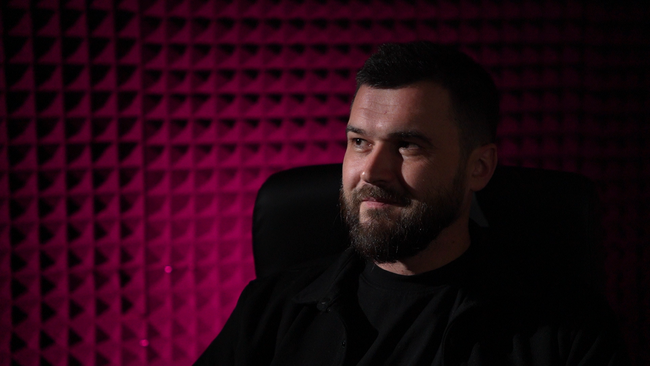
Photo: Intent/Natalia Dovbysh
The people there are so full of energy and stories to share. We traveled by train, and then the teacher and her son picked me up at the station. Then we drove another 20 or 30 minutes. The school was small, and everyone gathered in the hall. It's one of my fondest memories.
It's hard for me to talk about Liubashivka because it's the place that holds my heart. Trying to describe it always comes across as dry, like reading from a Wikipedia article, or makes me drift into nostalgia. Last year, the book Dzvinka. A Ukrainian Woman Born in the USSR came out. It's written by Nina Kuriata, a Ukrainian writer and journalist. She grew up in Liubashivka, but I went to school there a little later. It turns out that Nina's mother was a former classmate of my mother's, and we only found this out a few years ago. Before publishing the book, Nina sent me an electronic version with a note saying, "I wanted you to read this." There are three chapters: "Liubashivka, Odesa, Kyiv," and the first three pages brought me to tears. Nina describes Liubashivka so wonderfully, what it was and what it is like now, as not much has changed. I highly recommend reading it.
You write about your family and share moments with them on social media. At one point, I realized that I would recognize them if I saw them on the street. It's hard not to notice the bond that you have. So, what does family mean to you?
My family is quite big, and it means the world to me. They are my source of strength and faith. Mutual support and understanding are our only way forward. We can't do anything alone. In my first and so far only essay, I wrote about how people came together to help us buy a car for my nephew's unit at the front. I mentioned that this is part of our old Ukrainian tradition—a toloka.
In the past, people would come together to clean the streets and prepare for burials, weddings, and christenings. The idea was simple: to unite, repair, rebuild, and hold on to their family and friends. The war, especially since the full-scale invasion, has shown us just how much we need each other. Volunteering is also an example of mutual support. That's why I keep saying that we simply won't make it without this mutual understanding.
Mariia Lytianska
